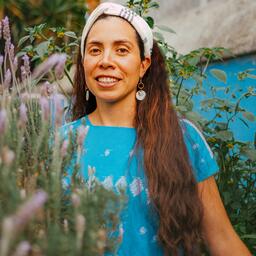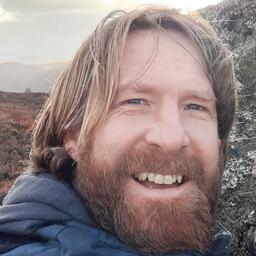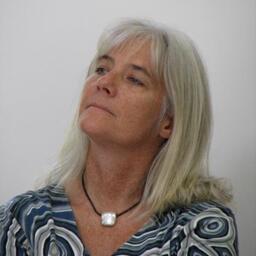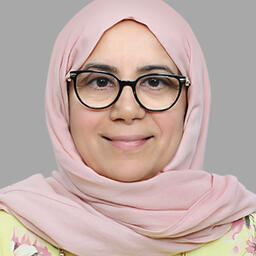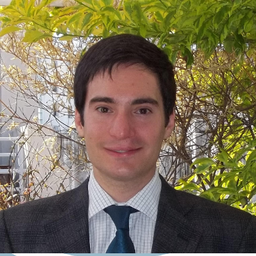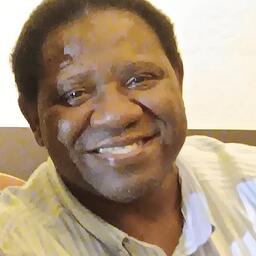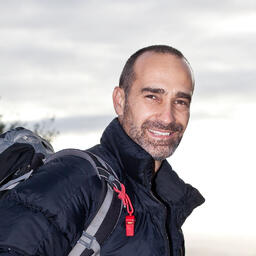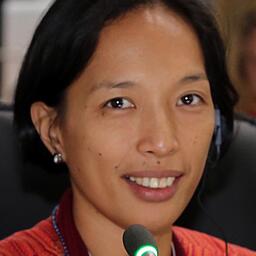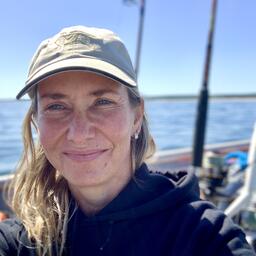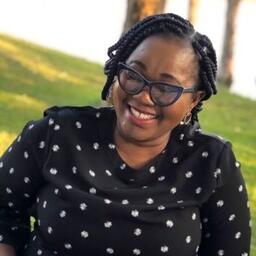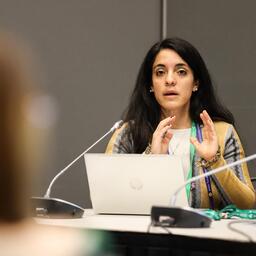Kristen Walker Painemilla has been with Conserva- tion International (CI) for over 20 years; she is Senior Vice President and Managing Director the Center for Communities and Conservation. In her role ...
CEESP Steering Committee Members

The CEESP Steering Committee is appointed according to the IUCN Statutes and Regulations and assists the Chair and Deputy Chair in guiding and coordinating the activities of the Commission.
Kristen Walker Painemilla - Commission Chair
Dr Ameyali RAMOS
Commission Deputy Chair
Ameyali Ramos is currently the Deputy Chair of the IUCN Commission on Environmental, Economic and Social Policy (CEESP). Ameyali has more than 20 years of experience working ...
Mr Luc BAS
Regional Vice Chair, West Europe & Mediterranean
Until recently Luc was Head of Coordination, Networks and Strategy for the European Environment Agency Before that Luc was the Director of the IUCN ...
Dr Neil DAWSON
Theme on Human Wellbeing & Sustainable Livelihoods
My research focuses on the forms of governance which may align with local communities’ values, perceptions of fairness and minimise tradeoffs ...
Dr Ritu DHINGRA
Dr. Ritu Dhingra, a notable environmental law expert, serves as the Regional Vice Chair for East and Southern Asia at IUCN CEESP. With a Ph.D. in Environmental Laws, she has dedicated over three ...
Dr Elise HUFFER
Regional Vice Chair, Oceania
Elise’s interests and work are in the areas of culture, conservation and development and the relationships between them in Oceania. She is an Adjunct Associate ...
Mrs Mahnaz KADHEMI
Regional Vice Chair, West Asia
Mahnaz Kadhemi is a member of the Environmental Citizenship Program, one of Bahrain Women Association for Human Development’s programs. She joined IUCN in 2002 ...
Mr Pablo CRIMER
Regional Vice Chair, South America Pablo Crimer has more than 15 years’ experience providing legal advice on environmental, social, governance and sustainability matters to corporations. He focuses ...
Dr Emmanuel NUESIRI
Natural Resource Governance Framework
Dr. Emmanuel Nuesiri, has a PhD. in environmental governance from St. Antony's College, University of Oxford. He has extensive teaching and research experience ...
Dr Michael PAINTER
Regional Vice Chair, North America
Michael Painter is an ecological anthropologist, with a Ph.D. from the University of Florida. His long-term research interests have focused on the social and ...
Dr Jacob PARK
Theme on Economics and Regenerative Finance
Jacob Park is Associate Professor in Vermont State University (Castleton) https://www.castleton.edu/directory/faculty-staff-directory/details/jacob-park ...
Mr Galeo SAINTZ
Co-Chair, Task Force on Migration, Environmental Change and Conflict
Galeo Saintz is an independent conservation, trails and environmental peace practitioner and consultant. He is founder and co ...
Ms Jennifer CORPUZ
Chair, Indigenous People & Environment
I am Indigenous woman from the Kankanaey Igorot People of Besao, Mountain Province in the Philippines. I am a lawyer by profession, having obtained my ...
Dr Melanie ZURBA
Chair, Theme on Governance, Equity and Rights
Professor Zurba’s work focuses on projects that are developed and implemented in collaboration with communities. Professor Zurba has worked ...
Iben MUNCK
Executive Officer.
Iben Munck is the Executive Officer for IUCN’s Commission on Environmental, Economic, and Social Policy, as well as Executive and Communications Manager for Conservation ...
Ms Monipher MUSASA
Regional Vice Chair, CEESP Africa
Growing up in a community that lived outside a protected area, Monipher has from a young age, learnt to appreciate the rich biodiversity of her country, Malawi ...
Swetha STOTRA BHASHYAM
Chair - IUCN CEESP Young Professional.
Swetha Stotra Bhashyam is the Global South Focal Point of the Global Youth Biodiversity Network (GYBN). GYBN is a youth network of more than 1 million members ...
Ms AMELIA ARREGUIN PRADO
Regional Vice Chair, Mexico, Central America and the Caribbean
CONTACT ME AT amelia@ceesp.net
Former CEESP Young Professional Focal Point for Meso and South America
I am a specialist in gender justice ...

